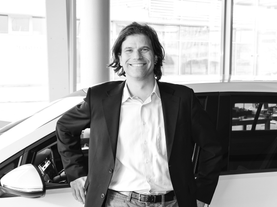Transport for London’s Project Communications Specialist, Catherine Westoby explains what steps are being taken tackle the capital’s air pollution crisis to improve the health and wellbeing of Londoners.
I’m part of the TfL team that is behind making sure that London road users are aware that the Ultra-Low Emission Zone (ULEZ) is coming into effect on 8 April 2019 and will be expanded to the North and South Circulars in October 2021.
Explaining the reasons for introducing the ULEZ is easy, particularly when you look at the significant impact that it will have on improving air quality.
The introduction of ULEZ will significantly reduce the number of polluting vehicles entering central London and we anticipate that after one-year, harmful emissions will have been reduced by 45% in central London and 40% in the surrounding areas. The expansion of the Ultra-Low Emission Zone to the North and South Circulars in 2021 should deliver a further 20% reduction across London.
Our communication challenge is to do all we can to ensure that people are aware of the new ULEZ and understand the impact it will have on them, enabling them to make the necessary adjustments to their behaviours and transport choices.
We have been working closely with the BVRLA and other key organisations to get the message out to drivers, advising them to check their vehicle’s compliance through our vehicle checker on the TfL website.
So far, 2.4 million people have used the TfL vehicle checker to see if they comply with the ULEZ standards and for guidance, including some useful information on what type of vehicles meet the standards.
As well as working with industry partners to help spread the word we have sent letters to vehicle owners who have driven in the zone with non-compliant vehicles, sent over 2.5 million emails to customers on TfL’s database and used outdoor advertising on 300 signs across the ULEZ area to advertise the new scheme.
We are engaging with small businesses and other groups who may find complying with ULEZ a little more difficult than others to find an affordable solution for any non-compliant vehicles they may have. Last week, on 22 February, the Mayor launched a £23 million scrappage scheme to help micro-businesses and charities prepare for the ULEZ. The fund options include payments to scrap a non-compliant van or minibus, help with the running costs of a new electric vehicle or a payment to help access rental and sharing schemes across London.
Another important part of our work to get London cleaner is to tackle emissions from buses and taxi fleets.
Since 2018, all new double deck buses are hybrid or zero emission. We have also launched an £85m programme to upgrade around 5,000 buses so that the entire fleet meets Euro VI emission standards in 2020. Twelve new Low Emission Bus Zones are being introduced in areas where Londoners are exposed to some of the highest levels of nitrogen dioxide pollution. Only buses that meet the cleanest Euro VI emission standards will operate within the zones, which have been delivered through a combination of new and retrofitted buses. We are also investing in fully electric buses and there are 165 operating on London’s roads so far, with more to come
In addition, we are phasing out diesel taxis to help make London’s taxi fleet the greenest in the world. Since last year, all new taxis need to be zero emission capable. TfL provides financial incentives to support this switch to cleaner taxis and more than 160 rapid charge points have been installed, with many dedicated to the trade.
As a result of the Mayor’s air quality proposals, we estimate that in 2021 100,000 fewer people in London will be living in areas exceeding legal NO2 limits, and 71 per cent fewer schools will be in areas of illegals air pollution. Children from the poorest background will benefit most from these bold measures, but there will be more to do to further reduce air pollution and achieve the Mayor’s long-term vision of zero emission transport.
We are grateful to our industry partners, including the BVRLA, for helping to increase awareness of the new ULEZ and we know that the vehicle rental and leasing industry, who are responsible for the cleanest vehicles on the road, will continue to support individuals and businesses with the appropriate advice and transport solutions that best meet their needs. Cleaning up London’s toxic air is a real team effort.





